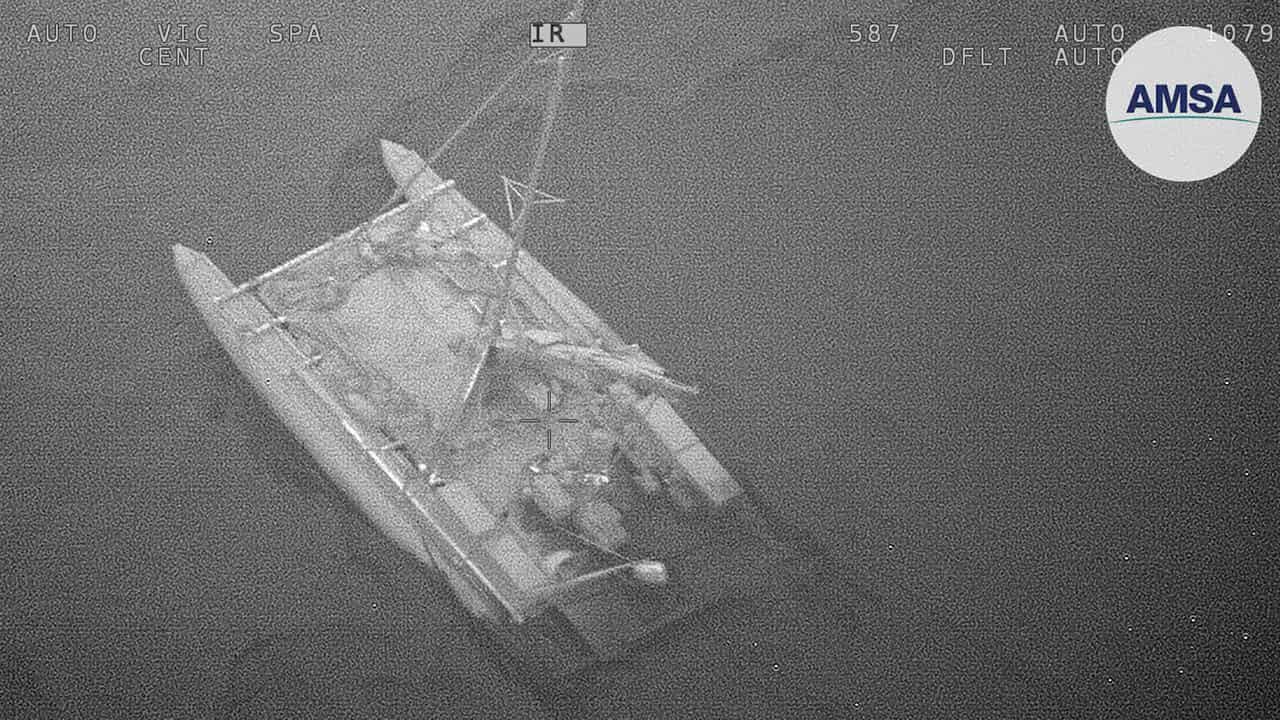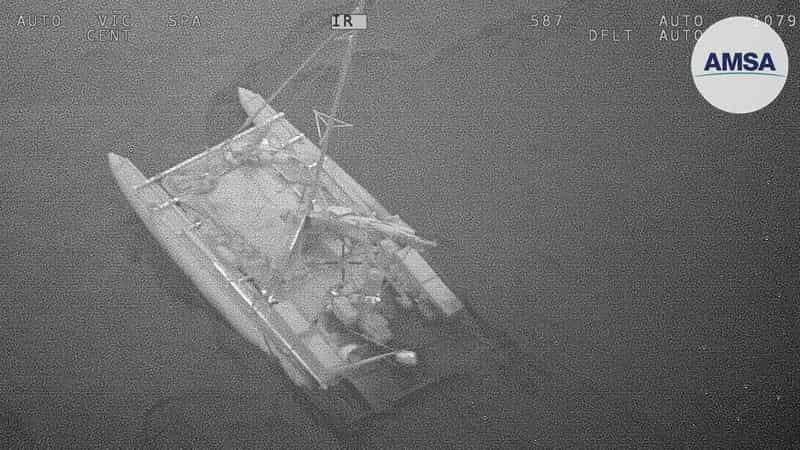
Three sailors on a round-the-world voyage have been rescued after their inflatable boat was attacked by sharks in the Coral Sea.
The "healthy and well" trio are on their way to an unscheduled pit stop in Brisbane after their ordeal on the nine-metre catamaran, the Tion.
The Australian Maritime Safety Authority (AMSA) co-ordinated the rescue after receiving a distress call at 1.30am on Wednesday from about 800km southeast of Cairns.
The two Russian men and a Frenchman aboard the vessel had left Vanuatu on their way to Cairns when their boat began to sink following damage to both hulls from several shark attacks, AMSA said.
AMSA aircraft arrived to find the vessel with large sections of the hull missing, with AMSA satellite photos and video showing a large part of the stern torn away.
The two Russians, Evgeny Kovalevsky and Stanislav Beryozkin, were on the Pacific leg of their attempt to circumnavigate the globe, with French crew member Vincent Etienne also on board, according to the expedition's website.
The sailors left Vanuatu on August 28 and planned to land in Cairns about September 11.
The Russians' journey began in St Petersburg in July 2021 but almost ended quickly and in darkness out at sea.
A first attack by sharks on Monday damaged the rear left balloon of the catamaran leaving it completely submerged, according to the expedition.
Late on Tuesday evening sharks attacked again, this time biting through the right cylinder and causing the boat to sink further.
The men issued a distress signal prompting AMSA to direct the vehicle carrier ship the Dugong Ace to their location before Cairns-based Challenger Rescue Aircraft arrived at the scene.
The Shanghai-bound Dugong Ace retrieved the men and diverted to Brisbane, where it is expected to arrive on Thursday.
"The three males were very happy to be rescued and they're all healthy and well," AMSA response centre duty manager Joe Zeller said.
He said there were many reasons why sharks attacked vessels, but "the motivations of these sharks is is unclear".
AMSA said the rescue was a timely reminder to always carry a distress beacon while on the water.
"Every time you proceed to the open ocean there's an element of risk," Mr Zeller said.
"But you can minimise that risk by having the appropriate safety equipment such as lifejackets and a GPS-encoded emergency beacon."
The Russians' three-year voyage is a project by a branch of the Russian Geographical Society, and aims to re-create the first Russian round-the-world expeditions of the 19th century.









